
Find Help
More Items From Ergsy search
-

Why is sleep apnea dangerous?
Relevance: 100%
-
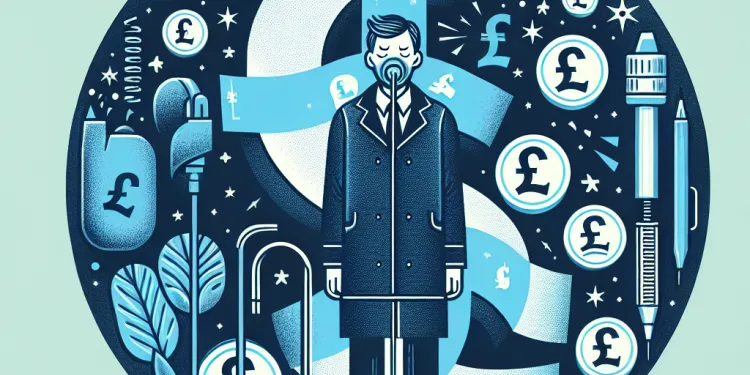
What is sleep apnoea?
Relevance: 80%
-

What is sleep apnea?
Relevance: 78%
-
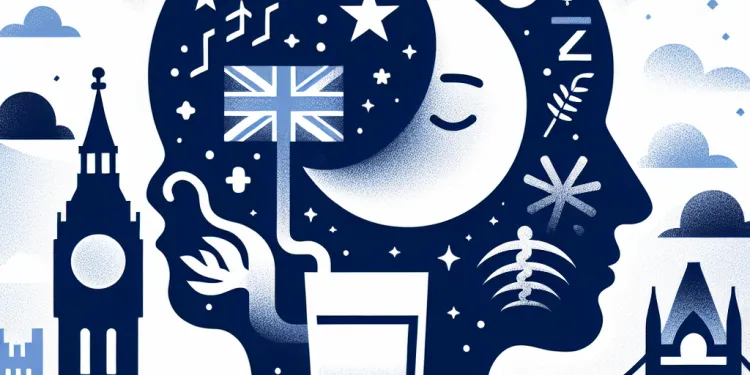
Can alcohol worsen sleep apnea?
Relevance: 75%
-
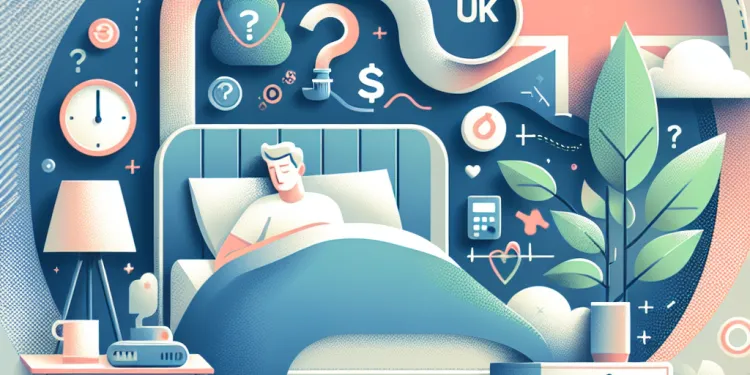
How common is sleep apnea?
Relevance: 74%
-
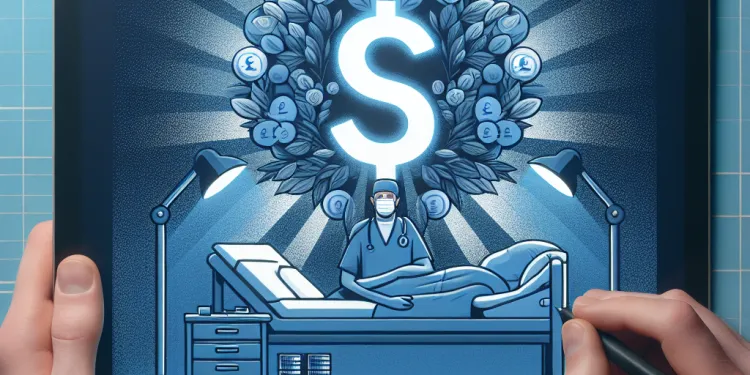
Can sleep apnea be cured?
Relevance: 74%
-
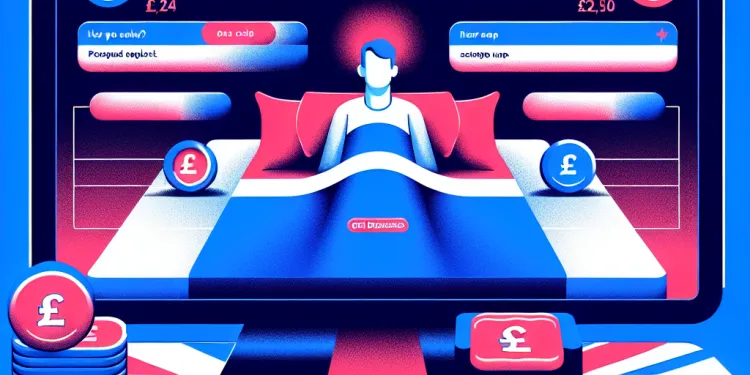
How is sleep apnea diagnosed?
Relevance: 74%
-
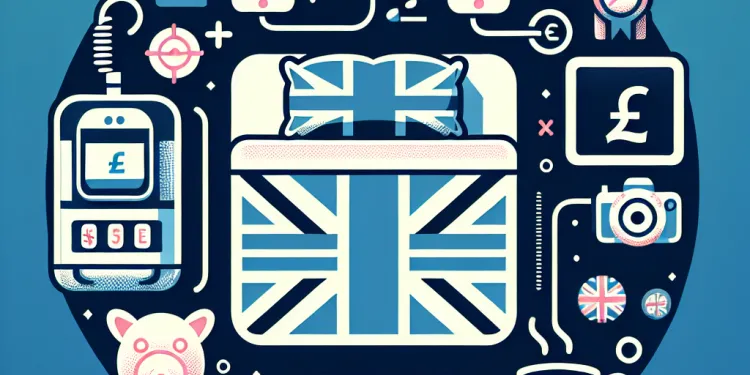
What are the main types of sleep apnea?
Relevance: 72%
-
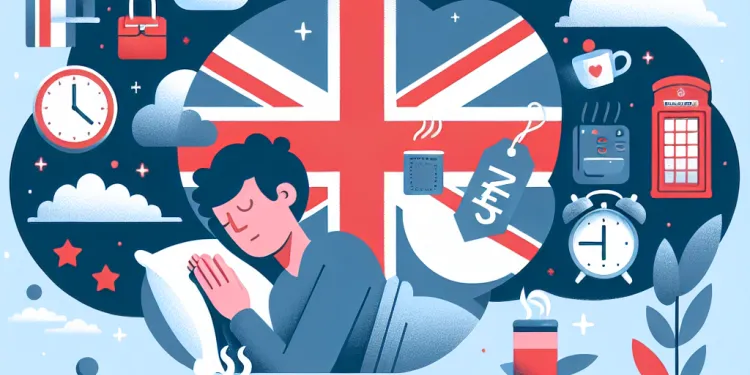
What are common symptoms of sleep apnea?
Relevance: 71%
-
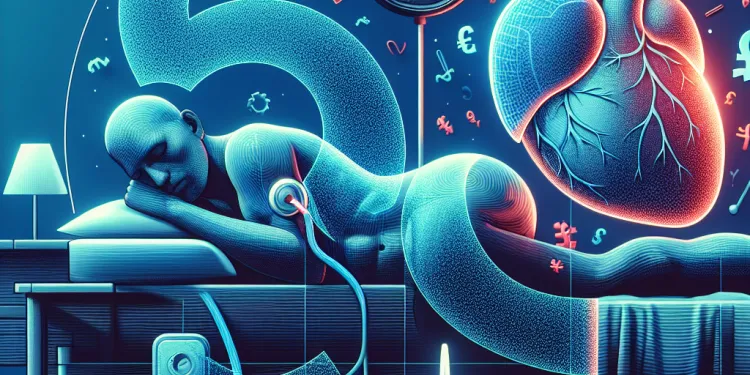
What is complex sleep apnea syndrome?
Relevance: 71%
-
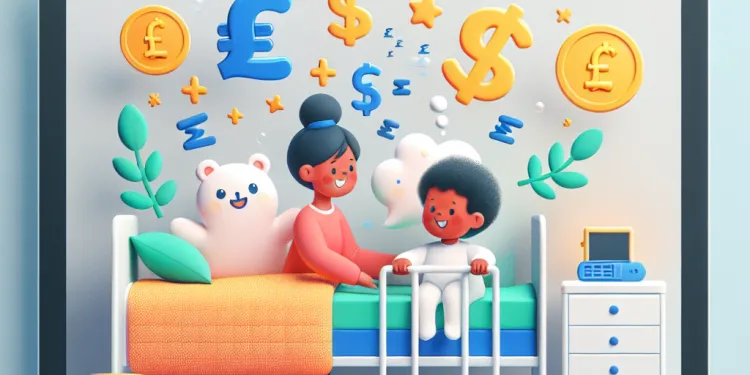
Can children have sleep apnea?
Relevance: 71%
-

What is complex sleep apnea syndrome?
Relevance: 71%
-
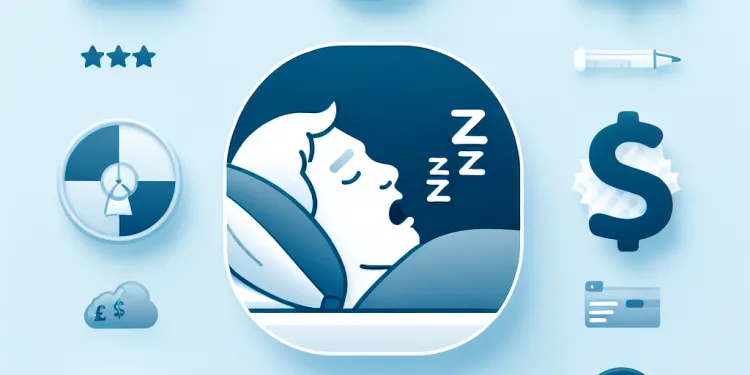
Is snoring always a sign of sleep apnea?
Relevance: 71%
-
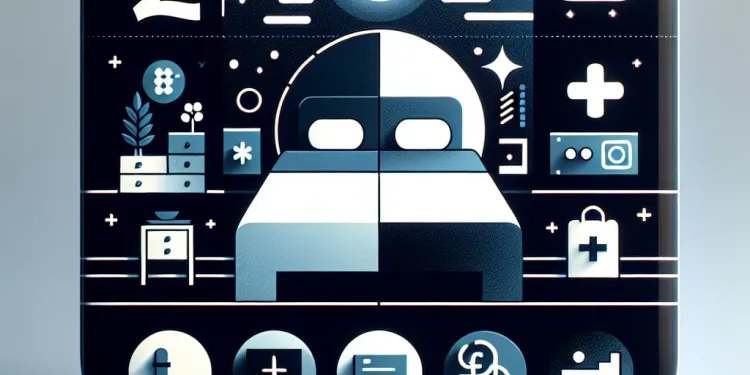
What treatments are available for sleep apnea?
Relevance: 70%
-
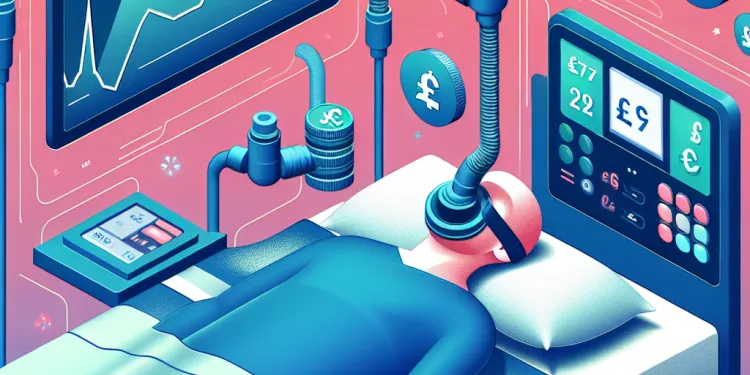
Is CPAP the only treatment for sleep apnea?
Relevance: 70%
-

What causes obstructive sleep apnea?
Relevance: 70%
-

Does sleep apnea occur only in adults?
Relevance: 69%
-
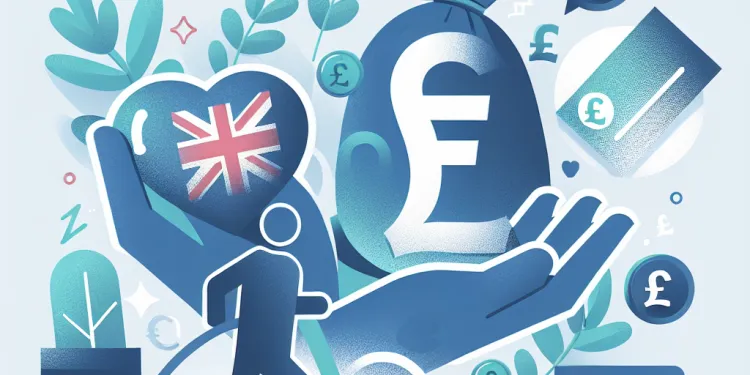
What are risk factors for developing sleep apnea?
Relevance: 69%
-

Can weight loss improve sleep apnea?
Relevance: 68%
-

What should I do if I suspect I have sleep apnea?
Relevance: 68%
-
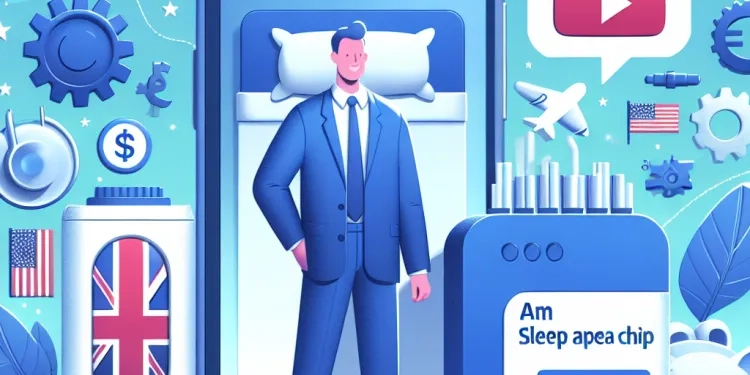
Am I eligible to try the new sleep apnea chip?
Relevance: 68%
-

How does the new Sleep Apnea Chip work?
Relevance: 65%
-

What lifestyle changes can help manage sleep apnea?
Relevance: 65%
-
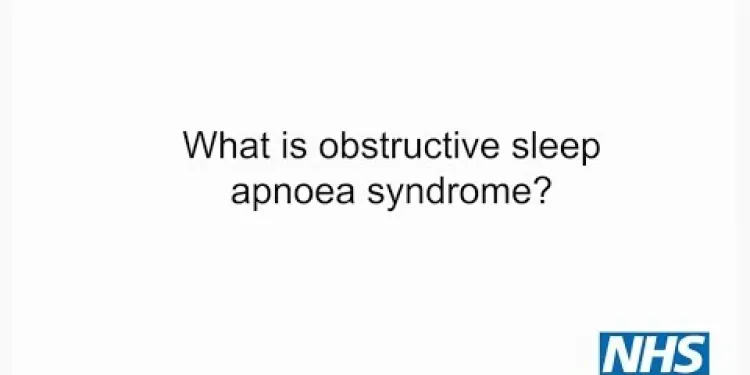
Introduction to obstructive sleep apnoea
Relevance: 55%
-
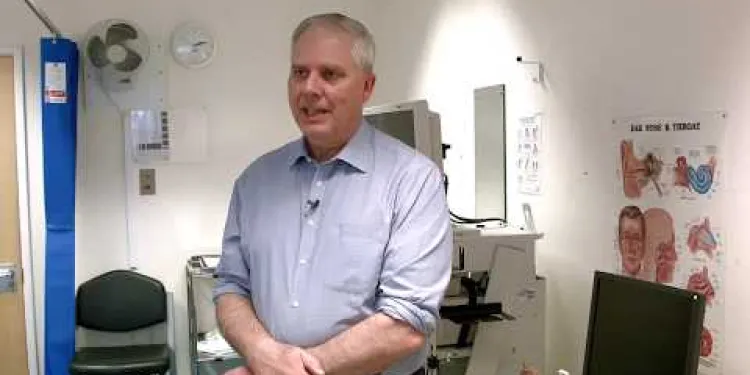
Evidence-Based Interventions: snoring surgery in the absence of Obstructive Sleep Apnoea (OSA)
Relevance: 50%
-
What is sleep apnoea?
Relevance: 39%
-

Can fatigue result in dangerous driving?
Relevance: 38%
-

What is dangerous driving?
Relevance: 36%
-

How does central sleep apnea differ from obstructive sleep apnea?
Relevance: 35%
-
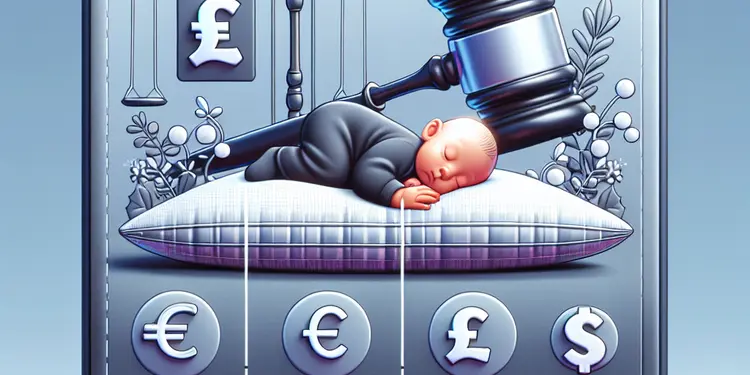
Are there any regulations on the sale of baby sleep pillows?
Relevance: 35%
-

Is it okay to use a baby sleep positioner?
Relevance: 34%
-

What is considered dangerous driving?
Relevance: 34%
-

What are the consequences of dangerous driving?
Relevance: 34%
-
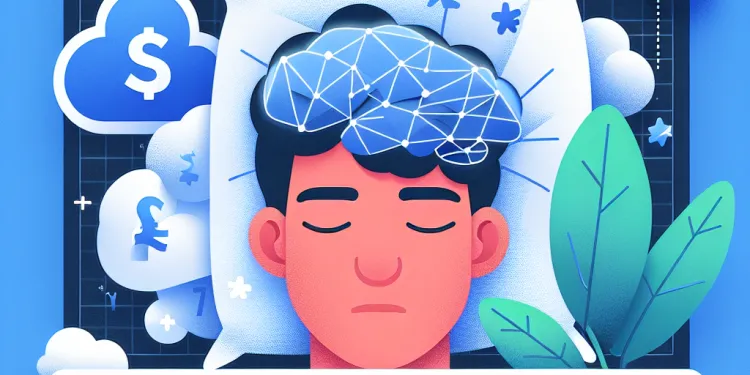
Is it safe to sleep after a concussion?
Relevance: 34%
-

Are there specific laws against dangerous driving?
Relevance: 33%
-
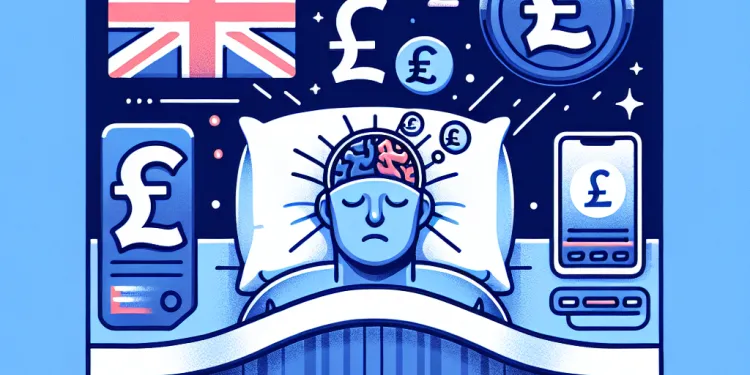
Is it safe to sleep after a concussion?
Relevance: 33%
-

What are the risks associated with baby sleep pillows?
Relevance: 33%
-
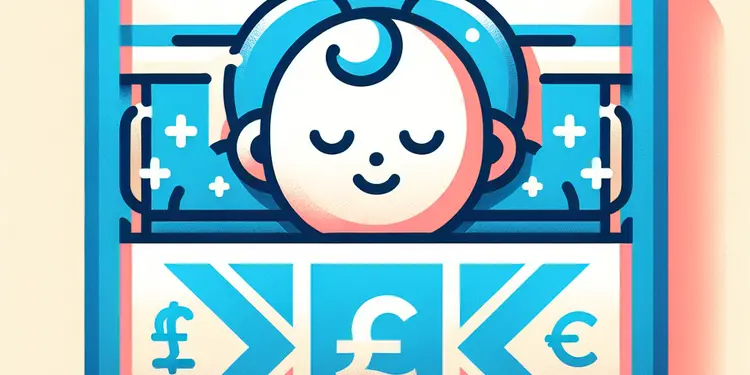
Why are baby sleep pillows not safe for infants?
Relevance: 33%
-

How is dangerous driving detected by police?
Relevance: 33%
-
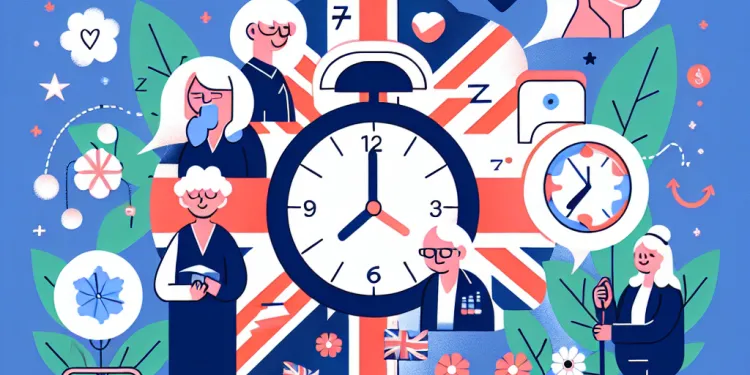
The Importance of Sleep for All Ages
Relevance: 32%
Understanding Sleep Apnea
Sleep apnea is a potentially serious sleep disorder where breathing repeatedly stops and starts. It affects millions worldwide, including a significant number in the UK. The two main types are obstructive sleep apnea (OSA), where the throat muscles relax excessively, and central sleep apnea, which involves the brain failing to send proper signals to the muscles that control breathing.
Health Risks Associated with Sleep Apnea
One of the primary dangers of sleep apnea is its impact on heart health. Interrupted breathing during sleep can lead to abrupt drops in blood oxygen levels, putting a strain on the cardiovascular system. This increases the risk of hypertension, stroke, heart attack, and irregular heartbeats, particularly atrial fibrillation.
Moreover, sleep apnea is linked to metabolic disorders like diabetes. The intermittent hypoxia (low blood oxygen) characteristic of sleep apnea can lead to insulin resistance, making it a risk factor for type 2 diabetes. In the UK, where diabetes is a growing concern, managing sleep apnea could be crucial in reducing this public health burden.
Cognitive and Daytime Impairments
Aside from physiological risks, sleep apnea severely affects daytime function. Individuals with untreated sleep apnea often experience excessive daytime sleepiness, which can impair concentration, memory, and overall cognitive function. This can lead to significant issues in daily activities, particularly those that require attention and alertness, such as driving or working on machinery, increasing the risk of accidents and injuries.
Impact on Mental Health and Quality of Life
Sleep apnea not only affects physical health but also mental well-being. Chronic sleep disruption is linked to depression and anxiety. The lack of restful sleep can exacerbate mental health conditions, leading to a cycle of deteriorating physical and mental health. Poor quality sleep also affects relationships and quality of life, as snoring and gasping for air can disturb partners, creating a significant social impact.
Importance of Diagnosis and Treatment
Despite the risks, many people with sleep apnea remain undiagnosed and untreated. Recognizing the symptoms, such as loud snoring, episodes of stopped breathing during sleep, abrupt awakenings with gasping, morning headaches, and excessive daytime sleepiness, is crucial. Diagnosis typically involves a sleep study, which can lead to effective treatments such as continuous positive airway pressure (CPAP) therapy, lifestyle changes, or surgical options.
Ultimately, addressing sleep apnea can substantially improve an individual’s health and quality of life. Increased awareness and early intervention are vital to mitigating its risks, benefiting both individuals and the wider UK healthcare system.
Understanding Sleep Apnea
Sleep apnea is a sleep problem. It makes your breathing stop and start while you sleep. It happens to many people around the world, including in the UK. There are two main kinds:
- Obstructive sleep apnea (OSA): This happens when the throat muscles relax too much.
- Central sleep apnea: The brain does not send the right signals to help you breathe.
Health Risks Associated with Sleep Apnea
Sleep apnea can hurt your heart. It makes your breathing stop for a bit, and this can lower oxygen in the blood. This is hard on the heart. It can cause high blood pressure, stroke, heart attack, and uneven heartbeats.
Sleep apnea is also linked to health problems like diabetes. Low oxygen can affect how your body uses insulin, which can cause type 2 diabetes. In the UK, diabetes is a big problem, so fixing sleep apnea could help.
Cognitive and Daytime Impairments
Sleep apnea affects what you do in the day. If not treated, it can make you very sleepy during the day. It can make it hard to focus and remember things. This makes everyday tasks hard, like driving or using machines, and can lead to accidents.
Impact on Mental Health and Quality of Life
Sleep apnea also affects your mood. Not sleeping well can lead to feeling sad or worried. It can make mental health problems worse. Bad sleep can also affect family and friends, especially if you snore or gasp at night, which can disturb others.
Importance of Diagnosis and Treatment
Many people have sleep apnea but do not know it. You need to watch for signs like loud snoring, stopping breathing at night, waking up with a gasp, headaches in the morning, and feeling sleepy during the day. A sleep study can find out if you have sleep apnea.
Treatments like using a CPAP machine, changing how you live, or surgery can help. Treating sleep apnea can make you feel much better and healthier. More people need to learn about sleep apnea and get help early. This is good for you and helps doctors in the UK take better care of everyone.
Helpful tools can include using alarms to remind you to take medicine or doing relaxing exercises before bed to help you sleep better.
Frequently Asked Questions
What is sleep apnea?
Sleep apnea is a disorder characterized by pauses in breathing or periods of shallow breathing during sleep.
Why is sleep apnea considered dangerous?
Sleep apnea is dangerous because it can lead to high blood pressure, heart disease, stroke, diabetes, and other serious health complications.
How does sleep apnea affect the heart?
Sleep apnea causes repeated interruptions in breathing, leading to reduced oxygen levels in the blood which can strain the cardiovascular system and increase the risk of heart disease.
Can sleep apnea lead to high blood pressure?
Yes, sleep apnea can cause or worsen high blood pressure due to the stress it places on the body and the frequent drops in blood oxygen levels.
What impact does sleep apnea have on diabetes?
Sleep apnea can increase insulin resistance, making it more difficult to control blood sugar levels and increasing the risk of type 2 diabetes.
How is sleep apnea linked to stroke?
Sleep apnea elevates the risk of stroke because the condition can cause or exacerbate high blood pressure, a major risk factor for stroke.
Does sleep apnea cause daytime fatigue?
Yes, disrupted sleep from sleep apnea leads to excessive daytime sleepiness, fatigue, and a reduced ability to concentrate.
Can sleep apnea contribute to weight gain?
Yes, sleep deprivation from sleep apnea can lead to hormonal imbalances that make weight gain and obesity more likely.
Is sleep apnea associated with depression?
Sleep apnea can increase the risk of depression due to impaired sleep quality and the stress of living with a chronic condition.
Can untreated sleep apnea lead to decreased life expectancy?
Yes, severe untreated sleep apnea is associated with a decreased life expectancy due to the numerous health complications it can cause.
How does sleep apnea affect cognitive function?
Sleep apnea can impair cognitive function, leading to problems with memory, learning, and concentration due to disrupted sleep.
Are there safety concerns with sleep apnea?
Yes, the drowsiness caused by sleep apnea increases the risk of accidents in everyday activities, such as driving.
What is the impact of sleep apnea on mental health?
Sleep apnea can worsen mental health conditions like anxiety and depression due to the constant sleep disturbance and oxygen deprivation.
Can sleep apnea increase the risk of accidents?
Yes, individuals with untreated sleep apnea are at a higher risk for accidents due to impaired alertness and increased fatigue.
How does sleep apnea disrupt sleep architecture?
Sleep apnea prevents individuals from reaching and maintaining the deeper, restorative stages of sleep, leading to poor sleep quality.
What is obstructive sleep apnea (OSA)?
OSA is a type of sleep apnea where the airway becomes blocked during sleep, often due to the collapse of soft tissue in the back of the throat.
How can sleep apnea affect work performance?
Sleep apnea can lead to reduced productivity, increased errors, and absenteeism at work due to excessive daytime fatigue and impaired concentration.
Can sleep apnea affect a partner's sleep?
Yes, the loud snoring and constant disruptions can also affect the sleep quality of bed partners, leading to their own issues with daytime fatigue and stress.
Is there a higher risk of cardiovascular problems with sleep apnea?
Yes, people with sleep apnea are at a higher risk of developing various cardiovascular problems including heart attack, arrhythmias, and heart failure.
Why is it important to treat sleep apnea?
Treating sleep apnea can significantly improve quality of life, reduce health risks, increase sleep quality, and enhance overall well-being.
What is sleep apnea?
Sleep apnea is a problem where you stop breathing for short times while you sleep. This can happen many times during the night. It can make you feel very tired during the day.
You can use these tips or tools to help:
- Ask a doctor for advice.
- Use a special machine called a CPAP to help you breathe at night.
- Try to sleep on your side instead of your back.
Sleep apnea is a problem when you stop breathing for a bit or breathe very lightly while you are asleep.
Why is sleep apnea dangerous?
Sleep apnea can be a problem because it stops your breathing while you sleep. This can make you tired, grumpy, and sick during the day.
When you have sleep apnea, you might not get enough oxygen. This can be bad for your heart and your brain.
If you think you have sleep apnea, talk to a doctor. They can help you feel better.
Using a machine while you sleep can help you breathe better. It's called a CPAP machine.
There are apps and tools that can help you track your sleep. You can try them to see how you sleep at night.
Sleep apnea is dangerous. It can make your blood pressure go too high. It can also hurt your heart. It can cause a stroke or diabetes. It can make you very sick in other ways too.
If you have trouble with reading, try using a ruler or your finger to follow along. Reading apps that read out loud can also be helpful.
How does sleep apnea affect the heart?
Sleep apnea is when you stop breathing while you sleep. This can make your heart work harder. It's like making your heart go faster and faster. This can hurt your heart over time.
Here’s how it happens:
- When you stop breathing, less oxygen gets to your heart.
- Your heart tries harder to pump blood, which can make it tired.
- This might lead to heart problems.
If you think you have sleep apnea, talk to a doctor. They can help you. You can also use special pillows or machines that help you breathe better at night.
Helpful tools:
- Special breathing machine (called CPAP).
- Sleeping on your side.
Sleep apnea makes you stop breathing for short times while you sleep. This can lower the oxygen in your blood, which can make your heart work harder and might cause heart problems.
Can sleep apnea make your blood pressure go high?
Yes, sleep apnea can make high blood pressure worse. This happens because sleep apnea makes your body stressed and lowers the oxygen in your blood many times during the night.
How does sleep apnea affect diabetes?
Sleep apnea and diabetes are health problems. Sleep apnea makes it hard to breathe during sleep. Diabetes is when your body struggles with sugar.
When you don't sleep well because of sleep apnea, it can make diabetes worse. Good sleep helps your body manage sugar levels. Bad sleep can make it harder.
If you have sleep apnea or diabetes, talk to a doctor. They can help you with treatments and ideas to feel better.
Use tools like a CPAP machine for better sleep. Eating healthy and exercising can also help.
Sleep apnea makes it hard for the body to use insulin. This makes it tough to control sugar levels in the blood. It can also make it more likely to get type 2 diabetes.
How can sleep problems be connected to a stroke?
Having sleep apnea can make it more likely for someone to have a stroke. This is because sleep apnea can make blood pressure go up. High blood pressure is a big cause of strokes.
Does sleep apnea make you feel tired in the day?
Do you feel very tired during the day? It might be because of sleep apnea.
Sleep apnea makes it hard to breathe when you sleep. It can wake you up many times at night.
When you do not get good sleep at night, you can feel very sleepy in the day.
If you think you have sleep apnea, talk to a doctor.
To help sleep better, try using a sleep mask or a machine to help you breathe.
Yes, sleep apnea can make it hard to sleep well. This can make you feel very sleepy during the day. It can also make you feel tired and make it hard to focus.
Can sleep problems make you gain weight?
Yes, not getting enough sleep because of sleep apnea can change your body's hormones. This can make it easier to gain weight and become overweight.
Can sleep problems make you feel sad?
Sleep apnea can make people feel sad because they get bad sleep and it can be hard to have a health problem for a long time.
Can sleep apnea make you live a shorter life if not treated?
Yes, if you have bad sleep apnea and don't treat it, it can make your life shorter. This is because it can cause many health problems.
How does sleep apnea affect thinking and memory?
Sleep apnea is a condition where you stop breathing for short times during sleep. This can make you very tired during the day.
If you are tired, it's harder to think clearly. You might forget things or find it hard to focus.
Try using a CPAP machine when you sleep. It helps you breathe easier and sleep better.
Sleep apnea can make it hard for your brain to work well. It can cause problems with memory, learning, and paying attention. This happens because sleep is disturbed.
Is sleep apnea safe?
Yes, sleep apnea can make you very sleepy. This makes it more likely to have accidents, like when you are driving.
How does sleep apnea affect the mind?
Sleep apnea can make it hard to have a good sleep.
If you do not sleep well, you might feel sad or worried.
Here are some ways to help make sleep better:
- Ask a doctor for advice.
- Use a special machine that helps you breathe when you sleep.
- Try relaxing before bed, like reading a book or listening to soft music.
Sleep apnea can make anxiety and depression worse. This is because it stops you from sleeping well and can make it hard for your body to get enough air.
Here are some things that could help:
- Use a CPAP machine. It helps you breathe better at night.
- Try talking to a therapist about your feelings.
- Practice deep breathing exercises to relax.
- Keep a sleep schedule by going to bed and waking up at the same time every day.
Can sleep apnea make accidents more likely?
Sleep apnea can make it hard to sleep well. If you feel very sleepy during the day, it can make accidents happen more easily.
Here are some tips to help you:
- Use a CPAP machine if your doctor suggests it. It helps you breathe while you sleep.
- Try to have a regular bedtime. Go to bed and wake up at the same time every day.
- Avoid caffeine and big meals before bedtime.
- If you keep feeling sleepy during the day, tell your doctor.
Yes, people with sleep problems might have more accidents because they feel tired and not as alert.
How does sleep apnea affect your sleep?
Sleep apnea stops people from getting deep, restful sleep. This makes their sleep not very good.
What is obstructive sleep apnea (OSA)?
Obstructive sleep apnea (OSA) is a condition that happens when your breathing stops and starts while you are asleep. This can make you tired during the day. Your throat muscles relax too much and block your airway. If you think you might have OSA, talk to a doctor.
- Tip: Use a CPAP machine. It helps you breathe at night.
- Tip: Try to sleep on your side.
- Tip: Keep a sleep diary to track how you sleep.
Get help if you have problems. You can feel better with treatment.
OSA is a problem that happens when you sleep. Your throat gets blocked, and it gets hard to breathe. This is because the soft parts in your throat can close up.
How does sleep apnea affect how you do your job?
Sleep apnea makes it hard to sleep well. This can make you feel very tired at work.
When you are tired, it is hard to focus and get things done. You might make more mistakes or work more slowly.
Here are some tips to help:
- Talk to your doctor about sleep apnea.
- Use a machine called CPAP to help you breathe at night.
- Try to go to bed at the same time each night.
- Take short breaks at work to rest your mind.
Sleep apnea can make you very tired during the day. This means you might make more mistakes at work and not get as much done. You might also miss work because of feeling so tired.
Can sleep problems affect your partner's sleep?
If you have sleep problems, like sleep apnea, it might make it hard for your partner to sleep. If you snore or stop breathing when you sleep, it can wake up the person sleeping next to you. They might feel tired the next day.
Here are some things that can help:
- Talk to a doctor. They can give you advice on how to sleep better.
- Try using earplugs to block noise.
- Use a white noise machine. It can help cover up sounds.
If both you and your partner sleep well, you both feel better during the day!
Yes, loud snoring and lots of waking up can make it hard for your partner to sleep. This can make your partner feel tired and stressed during the day.
Does Sleep Apnea Make Heart Problems More Likely?
People with sleep apnea might have more heart problems.
Sleep apnea is when you stop breathing during sleep.
It is important to talk to a doctor about sleep apnea.
Doctors can help you if you have sleep apnea.
Using a machine called CPAP can help you breathe better during sleep.
Yes, people who have sleep apnea are more likely to have heart problems. These can include heart attacks, uneven heartbeats, and heart failure.
Why is it important to help with sleep apnea?
Sleep apnea is when you stop breathing while you sleep. This can be very serious.
Getting help is important because:
- You sleep better and feel more rested.
- Your heart stays healthy.
- You can think more clearly during the day.
- It makes you feel better and happier.
Ask a doctor if you think you have sleep apnea. They can help you find the right treatment.
Using tools like a CPAP machine or wearing a special mouthpiece can help you breathe better at night.
Getting help for sleep apnea can make life much better. It can help you be healthier, sleep better, and feel happier overall.
Useful Links
This website offers general information and is not a substitute for professional advice.
Always seek guidance from qualified professionals.
If you have any medical concerns or need urgent help, contact a healthcare professional or emergency services immediately.
- Ergsy carfully checks the information in the videos we provide here.
- Videos shown by Youtube after a video has completed, have NOT been reviewed by ERGSY.
- To view, click the arrow in centre of video.
- Most of the videos you find here will have subtitles and/or closed captions available.
- You may need to turn these on, and choose your preferred language.
- Go to the video you'd like to watch.
- If closed captions (CC) are available, settings will be visible on the bottom right of the video player.
- To turn on Captions, click settings .
- To turn off Captions, click settings again.
More Items From Ergsy search
-

Why is sleep apnea dangerous?
Relevance: 100%
-

What is sleep apnoea?
Relevance: 80%
-

What is sleep apnea?
Relevance: 78%
-

Can alcohol worsen sleep apnea?
Relevance: 75%
-

How common is sleep apnea?
Relevance: 74%
-

Can sleep apnea be cured?
Relevance: 74%
-

How is sleep apnea diagnosed?
Relevance: 74%
-

What are the main types of sleep apnea?
Relevance: 72%
-

What are common symptoms of sleep apnea?
Relevance: 71%
-

What is complex sleep apnea syndrome?
Relevance: 71%
-

Can children have sleep apnea?
Relevance: 71%
-

What is complex sleep apnea syndrome?
Relevance: 71%
-

Is snoring always a sign of sleep apnea?
Relevance: 71%
-

What treatments are available for sleep apnea?
Relevance: 70%
-

Is CPAP the only treatment for sleep apnea?
Relevance: 70%
-

What causes obstructive sleep apnea?
Relevance: 70%
-

Does sleep apnea occur only in adults?
Relevance: 69%
-

What are risk factors for developing sleep apnea?
Relevance: 69%
-

Can weight loss improve sleep apnea?
Relevance: 68%
-

What should I do if I suspect I have sleep apnea?
Relevance: 68%
-

Am I eligible to try the new sleep apnea chip?
Relevance: 68%
-

How does the new Sleep Apnea Chip work?
Relevance: 65%
-

What lifestyle changes can help manage sleep apnea?
Relevance: 65%
-

Introduction to obstructive sleep apnoea
Relevance: 55%
-

Evidence-Based Interventions: snoring surgery in the absence of Obstructive Sleep Apnoea (OSA)
Relevance: 50%
-
What is sleep apnoea?
Relevance: 39%
-

Can fatigue result in dangerous driving?
Relevance: 38%
-

What is dangerous driving?
Relevance: 36%
-

How does central sleep apnea differ from obstructive sleep apnea?
Relevance: 35%
-

Are there any regulations on the sale of baby sleep pillows?
Relevance: 35%
-

Is it okay to use a baby sleep positioner?
Relevance: 34%
-

What is considered dangerous driving?
Relevance: 34%
-

What are the consequences of dangerous driving?
Relevance: 34%
-

Is it safe to sleep after a concussion?
Relevance: 34%
-

Are there specific laws against dangerous driving?
Relevance: 33%
-

Is it safe to sleep after a concussion?
Relevance: 33%
-

What are the risks associated with baby sleep pillows?
Relevance: 33%
-

Why are baby sleep pillows not safe for infants?
Relevance: 33%
-

How is dangerous driving detected by police?
Relevance: 33%
-

The Importance of Sleep for All Ages
Relevance: 32%


